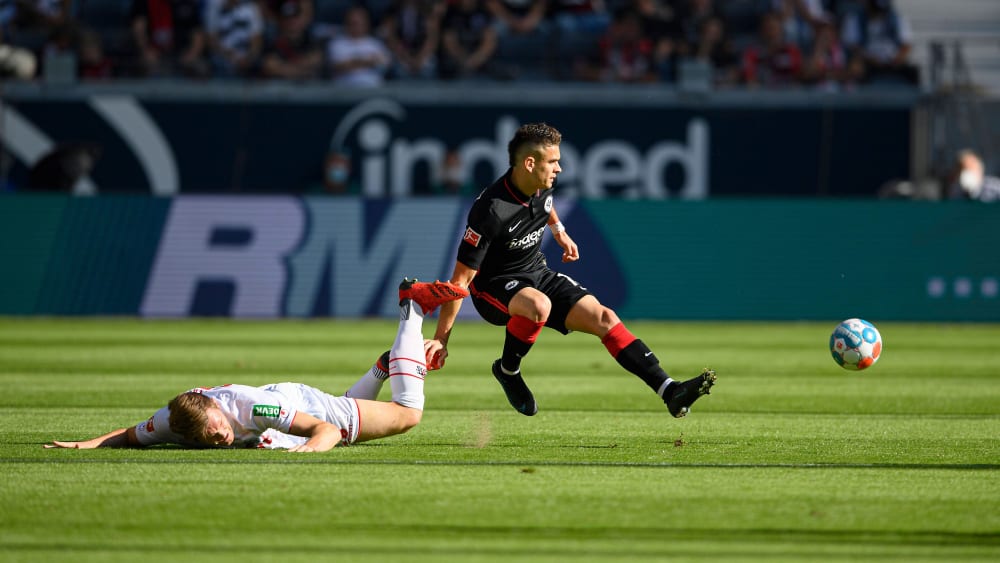Frankfurt’s disappointing start raises fears. But there are solid starting points that give hope.
Recent league history has provided several examples of teams that (successfully) competed in European competition one year and then unexpectedly found themselves in a relegation battle the following season. In 2017/18, 1. FC Köln plunged into the second division as Europa League starters. The same happened to VfB Stuttgart in 2018/19 after a previous seventh-place finish. And Werder Bremen had to go into relegation in 2019/20 instead of using their eighth-place finish in the previous season as a springboard into international business as they had hoped.
Certainly cautionary fates for Frankfurt’s Eintracht after only five points from six games and with the hardly solvable task of FC Bayern ahead of them. However, even if the points haul is a parallel to the aforementioned former basement teams, there are also clear differences.
Nobody wins more balls in the front third
Not least physically, the surprise relegation teams of the past have generally been uncompetitive. That looks quite different with the team of coach Oliver Glasner at the moment. So far, Frankfurt have covered an average of 117.9 kilometres per game. Of that, 20.9 kilometres have been jogged, 25.6 kilometres in intensive runs and 7.8 kilometres in sprints.
In the league rankings, Eintracht is second in every single one of these categories. The figure of 252 sprints per 90 minutes is also only just surpassed by a single competitor: The industry leaders and upcoming league opponents FC Bayern (254). Filip Kostic and his colleagues even record absolute top values for high pressing: 8.7 ball conquests per game in the front third of the pitch and 32.3 ball conquests in the middle third are the best in the league.
Only bottom team Fürth dribbles worse
Inversely, this means that Eintracht’s professionals have done far too little with the ball so far. Poor decision-making behaviour, openly admitted and criticised by Glasner and sporting director Markus Krösche, is proven by the statistical values. The passing rate of 75.5 per cent is still average in a league comparison. The rate of long balls (43.2 per cent), on the other hand, is only 15th in the league, and the rate of successful dribbles (47.8 per cent) is only beaten by SpVgg. Greuther Fürth (44.2 per cent).
In addition, only 27 per cent of all attempts to finish the game are actually on target, with only 6.8 per cent actually finding the target – 15th or 16th place respectively. Also rather worrying in the overall context: although Glasner recently dubbed his professionals “altar boys” with a wink, Eintracht have conceded the second most yellow cards in the league with 15. Bayer Leverkusen are top of the league in this category with 17 cautions – but as second in the table, they have also picked up eight points more.
The conclusion with regard to Eintracht is obvious: The intensity does not leave much to be desired and is considered by those responsible to be a promising basis for success. However, it is imperative to prove that the effectiveness is actually increasing. So that Europa League starters Frankfurt do not join the list of the abruptly fallen





